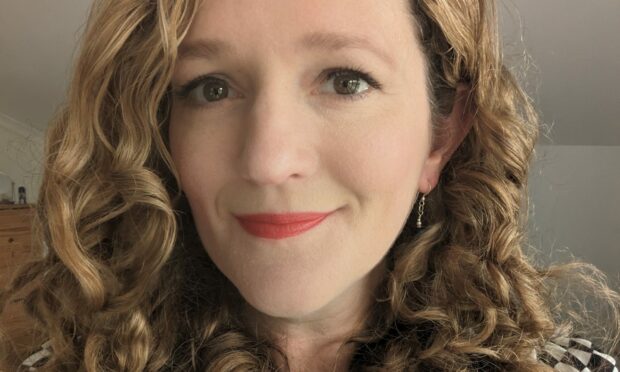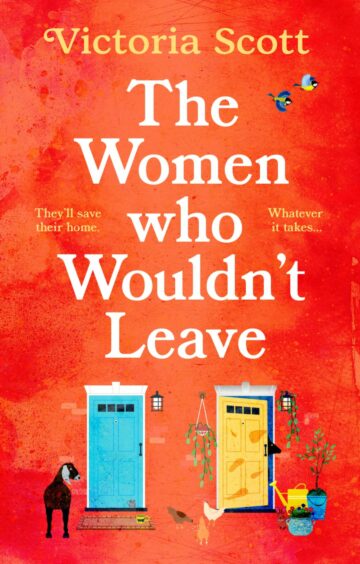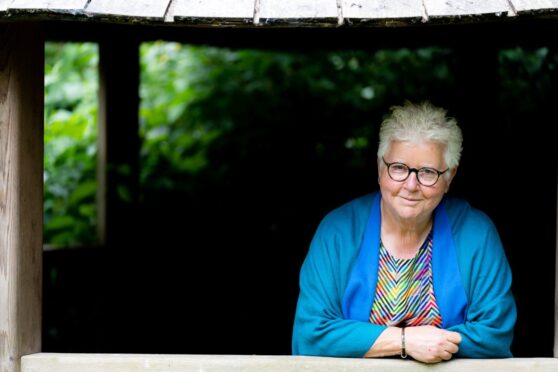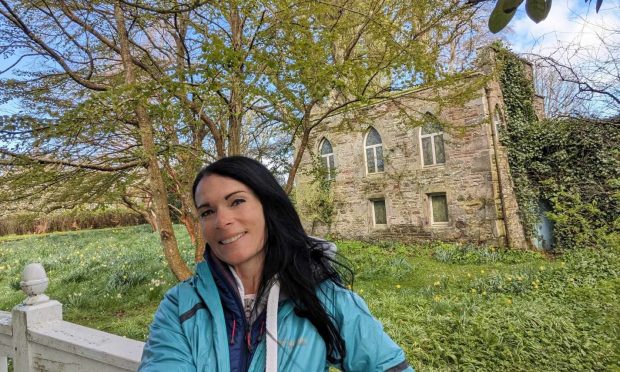As a newlywed and new mother, novelist Victoria Scott found herself 4,000 miles from home and “extremely lonely”.
The journalist-turned-author became an “accidental expat” in 2009 as the financial crash forced her and her husband to move to Qatar for work.
While out there, she became a mum to her son, now 13, and daughter, nine.
And although being a new mum in a foreign land wasn’t easy for former BBC broadcaster Victoria, she says the community of older expat women around her kept her going.
“It was very isolating,” she says candidly. “My husband was working away a lot, and I had young children, and I was really lonely at times.
“So I formed relationships with women of my mum’s generation who were out there.
“They became so important to me, those cross-generational friendships. They almost became honorary grandparents to my children.”
It was these “cross-generational” friendships which inspired the one at the centre of her new novel, The Women Who Wouldn’t Leave, between 90-year-old recluse Matilda and her 20-something neighbour Connie.
The unlikely duo meet when Matilda has an accident and asks Connie to look after her menagerie of plants and animals – all of whom are named after characters from legendary BBC4 radio show The Archers – while she recovers in hospital.
“I think we can learn a lot from the older generation,” observes Victoria. “We’ve all had our hearts broken haven’t we? We’ve all had rubbish days and struggled.
“There’s so much of the common threads of humanity that run through all of us, and when you have a friend of a different age, that becomes very clear.”
And Connie and Matilda’s friendship deepens when their beloved cul-de-sac comes under threat from the council, who want to evict and rehouse the residents.
Social housing crisis inspired story
Victoria is known for imbuing her writing with her own experience. Her acclaimed novel Patience took inspiration from her relationship with her sister, who has Rett syndrome and is profoundly disabled.
“In Patience, main character Eliza certainly had a few of my experiences, but she was not me. Patience was kind of what I imagine my sister to be like; but my sister and I have never been able to have a conversation,” she says.
Meanwhile in The Women Who Wouldn’t Leave – written “in snatches, while my daughter does her gymnastics class” – the characters are firmly made up, but the subject of the social housing crisis is literally close to home, as Victoria reveals that the fictional village of Stonecastle is based on her hometown, Castlemorton in Worcestershire.
“I’m a journalist, so I read a lot of news, obviously. And there had been a rash of stories about councils selling off old social housing to rehouse them somewhere else,” she explains.
“I also know, because I grew up in rural Worcestershire, where the novel is set, that there isn’t enough social housing in rural areas. So I put those two things together.
“At the end of my road there used to be the loveliest council houses – big, redbrick, beautiful. They had big gardens that you could grow veg in. And that sort of inspired me.”
Covid created longing for community
The novel can be described, Victoria says, as the story of “the really good things that can happen when humans lift each other up and help each other out”.
And she admits it is probably a “direct reaction” to the Covid lockdown.
“It’s a reaction to lockdowns, being isolated, and not being able to get the support of other humans,” she explains.
“Video calls were helpful, but it’s not the same as looking someone in the eye. And being frightened of one another was really upsetting.
“I think we really underestimate the importance of those social contacts, even if they are just a brief hello. Knowing you’re part of a community, and that there are people around who might help you if you’re in trouble, is a really reassuring thing.”
Home is about people, not places
Somewhat ironically for the writer of a book called The Women Who Wouldn’t Leave, Victoria admits that her experiences abroad have made it so that there’s not much she wouldn’t leave behind.
For her, home is wherever her husband and children are.
“We came back from the Middle East with just suitcases and a couple of boxes,” she recalls. “We couldn’t bring back a whole load of belongings, so we just brought back our memories and ourselves.
“And what that taught me was that it’s the people that really matter.”
But she admits that although she now lives in Surrey, lecturing at Kingston University, she will always have a soft spot for the landscapes of her rural childhood.
“If I go for a walk on the Malvern Hills, I feel like they’re a part of me and I’m a part of them,” she says fondly.
“Maybe home is about the memories you have. Wherever you open the curtain and have the same view every day, and feel safe.
“That’s home.”
The Women Who Wouldn’t Leave by Victoria Scott, published by Bloomsbury, RRP £9.99, is out now.













Conversation